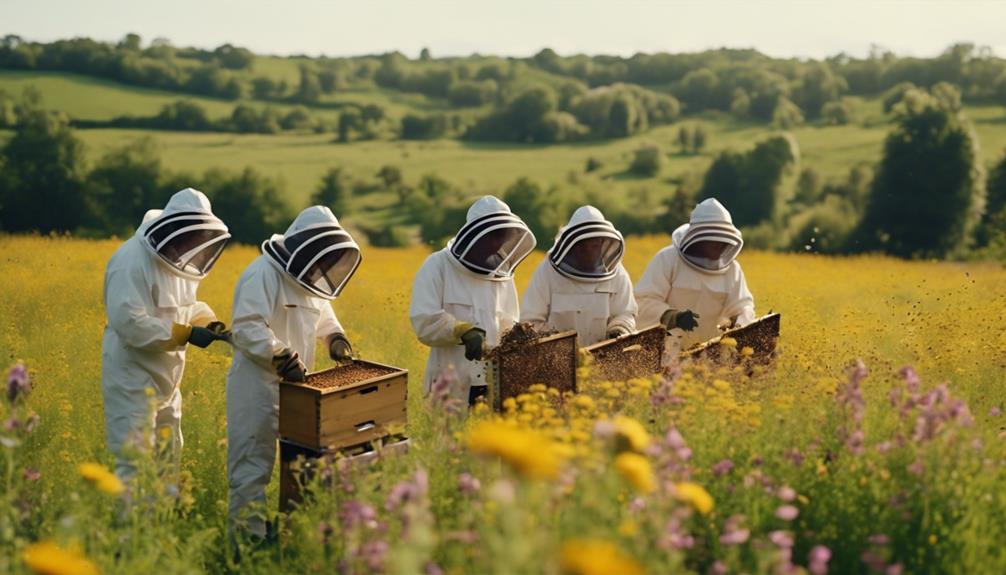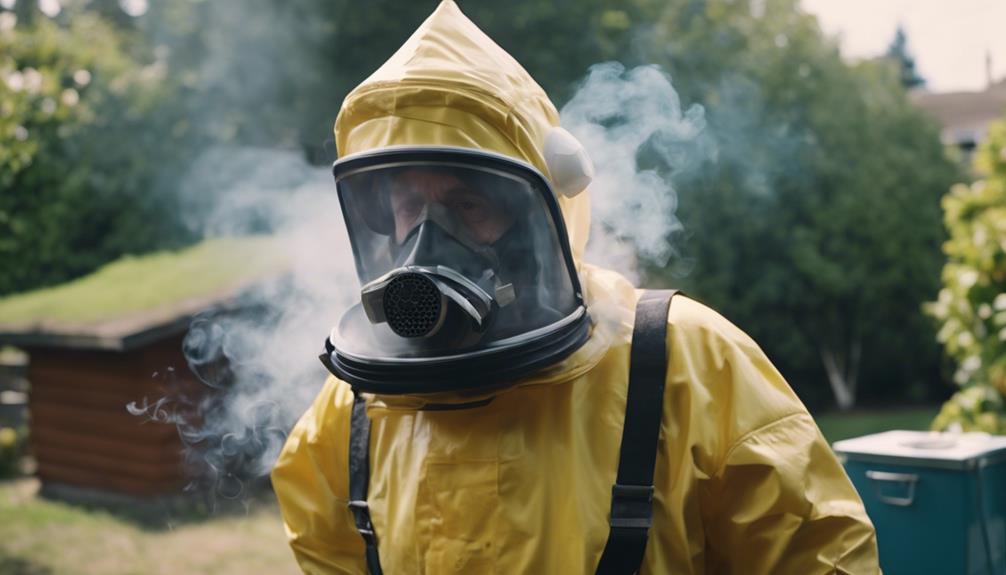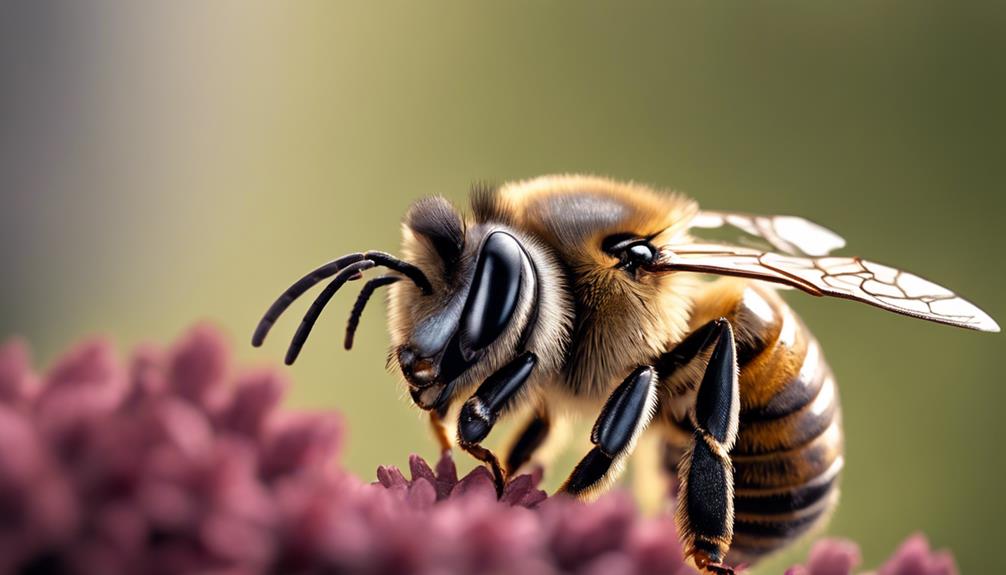In relation to ethically sourcing honey, it’s all about environmentally friendly beekeeping, bee welfare, sustainable methods, and supporting local beekeepers. By prioritizing these steps, the honey industry can become sustainable and socially responsible. Embracing practices that value the environment, guarantee bees’ well-being, and support local communities is the key to ethical honey sourcing. Each step contributes to a honey industry that benefits everyone involved, from bees to beekeepers to consumers. There’s a world of information ready to uncover about how these practices positively impact the honey you enjoy.
Main Points
- Prioritize environmentally friendly beekeeping methods.
- Ensure bee welfare and colony vitality.
- Support fair working conditions for beekeepers.
- Choose ethical honey brands and fair trade certified products.
- Mimic natural habitats to promote bee well-being.
Ethical Honey Sourcing Practices
When sourcing honey ethically, it’s crucial to prioritize environmentally friendly beekeeping practices that focus on bee welfare and colony vitality. Opting for beekeepers who use sustainable methods, such as avoiding harmful pesticides and chemicals, helps create a conducive environment for bees to thrive and produce high-quality honey.
Look for organic certification and consider purchasing from local beekeepers to support ethical honey production. By choosing honey sourced through environmentally friendly practices, you not only enjoy a healthier product but also contribute to bee conservation and maintain a balanced ecosystem.
It’s about making mindful choices that benefit both us and the environment, ensuring a sustainable future for all.
Environmental Sustainability in Honey Production
Promoting environmental sustainability in honey production involves implementing beekeeping practices that prioritize ecosystem health and support bee welfare. To achieve this, environmentally friendly beekeeping methods are crucial. Sustainable practices establish a suitable habitat for bees during honey production, ensuring their well-being and productivity.
Avoiding harmful pesticides and chemicals in honey harvesting not only supports bee welfare and colony vitality but also maintains a harmonious ecosystem by safeguarding the health of all living organisms. By choosing organic honey online, consumers not only enjoy a healthier lifestyle but also contribute to the preservation of our natural world.
Making these mindful choices can lead to a more sustainable future for both bees and the environment.
Bee Welfare Considerations
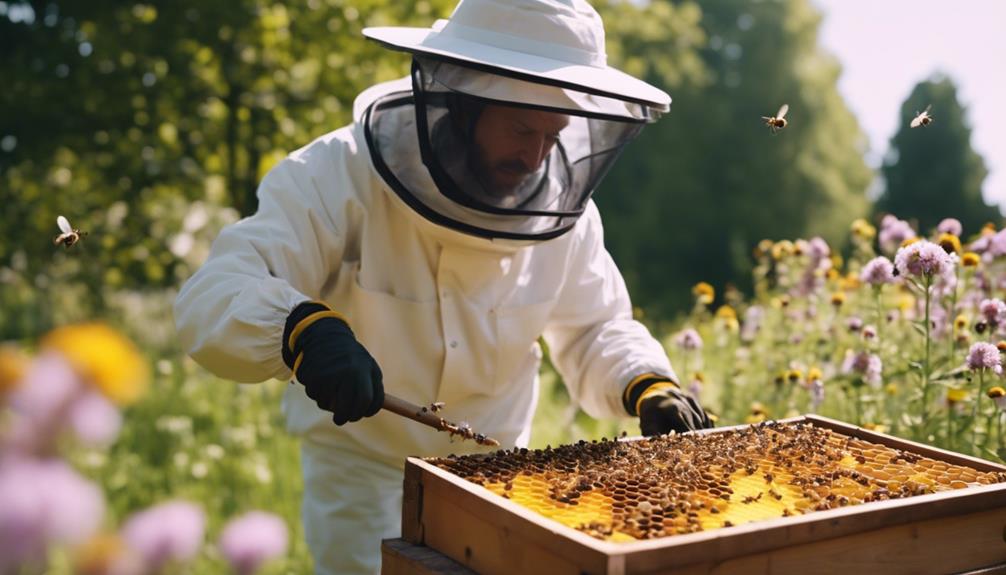
In considering bee welfare, it’s essential to prioritize practices that support the health and vitality of bee colonies. Bees housed in oversized hives can suffer from being overworked, negatively impacting their well-being.
Autumn honey extraction, while tempting for humans, can lead to malnutrition and cold stress for the bees. Substituting honey with sugar water might seem convenient, but it can compromise bee immunity and overall health. Unnatural beekeeping practices pose a significant threat to bee survival and well-being.
Fair Working Conditions for Beekeepers
To guarantee the ethical sourcing of honey, we prioritize fair working conditions for beekeepers, emphasizing their well-being and rights. Ensuring critical trade practices and sustainable practices in the beekeeping industry is essential for supporting the health and well-being of those who work tirelessly to bring us this sweet nectar. Here are three key aspects that contribute to fair working conditions for beekeepers:
- Providing proper safety equipment and training to prevent accidents and injuries.
- Establishing transparent agreements between beekeepers and buyers to promote mutual respect and cooperation.
- Offering reasonable wages and benefits through critical trade practices to support the livelihoods of beekeepers.
Supporting Ethical Honey Brands
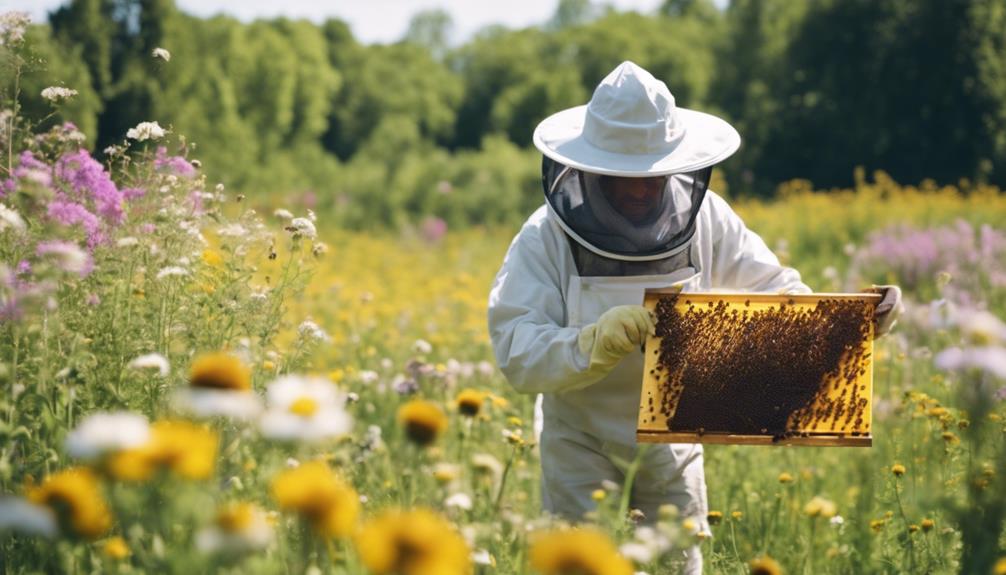
Highlighting the importance of endorsing ethical honey brands guarantees a positive influence on beekeepers and the sustainability of the industry. When we choose honey from brands like Equal Exchange and Tropical Forests, we actively support sustainable beekeeping practices.
Opting for fair trade certified honey ensures better working conditions for beekeepers, promoting a more ethical industry. By selecting honey produced through organic or conservation beekeeping methods, we contribute to ethical honey sourcing that prioritizes the well-being of bees.
Purchasing honey from local sources and practicing beekeepers not only supports balanced beekeeping but also strengthens the community. For more guidance, Ethical Consumer’s honey guide offers valuable insights into environmental, animal, social, and political criteria when selecting honey brands.
Let’s make informed choices to support ethical practices in the honey industry.
Importance of Fairtrade Certification
Fairtrade certification plays a pivotal role in guaranteeing fair prices for honey producers and supporting sustainable livelihoods in the industry. When you opt for Fairtrade certified honey, you aren’t just getting a sweet treat but also contributing to ethical labor practices, community development, and environmental standards.
Here’s why Fairtrade certification matters:
- Ethical Labor Practices: Fairtrade guarantees that honey producers are treated fairly, with no exploitation or child labor involved.
- Community Development: By backing Fairtrade honey, you help communities thrive economically and socially.
- Transparent Supply Chain: Fairtrade certification ensures a traceable and transparent supply chain, giving you peace of mind about where your honey comes from.
Choosing Fairtrade honey means supporting sustainable livelihoods and a more equitable global market.
Promoting Local and Small-Scale Honey Producers

When we select local honey producers, we aren’t just backing a business; we’re fostering our communities.
By choosing honey from small-scale beekeepers, we’re making a positive impact on the environment and local biodiversity.
Let’s investigate how these choices can influence our world in ways we mightn’t have considered before.
Supporting Local Beekeepers
Backing local beekeepers improves the sustainability and ethical standards of honey production. When we support local beekeepers, we aren’t just choosing a jar of honey; we’re making a statement about our values and the future we want to see. Here are three reasons why supporting local beekeepers matters:
- Protecting Bee Welfare: Local beekeepers often prioritize the well-being of their bees, ensuring they’re cared for and not overworked.
- Preserving Biodiversity: Buying honey from small-scale producers helps maintain local bee populations and supports biodiversity in our communities.
- Reducing Carbon Footprint: Opting for honey from local sources decreases the transportation distance, lowering carbon emissions and supporting environmental sustainability.
Impact of Globalization
Globalization has significantly expanded consumers’ access to honey from small-scale and local producers worldwide. This shift promotes ethical sourcing, sustainability, and transparency within the honey industry. By supporting small-scale producers through fair trade practices, globalization empowers communities and fosters environmentally conscious production methods.
Choosing to purchase honey from local beekeepers not only guarantees a high-quality product but also contributes to the livelihoods of those who work hard to bring it to our tables. Globalization has created connections between consumers and small-scale honey producers, allowing us to make informed choices about where our honey comes from.
Embracing this interconnectedness can lead to a more equitable and sustainable honey industry, benefiting both producers and consumers alike.
Ensuring Balanced Beekeeping Practices
Harmonious beekeeping practices prioritize the welfare of our buzzing companions. By permitting bees to adhere to their innate tendencies, such as swarming and queen production, we promote their health and essentiality.
It’s crucial to gather from varied, chemical-free farms and treat hives organically to guarantee the sustainability of balanced beekeeping practices.
Bee Welfare Standards
How can we ensure that bee welfare standards are maintained through balanced beekeeping practices? By prioritizing bee health and natural behaviors, we can guarantee ethical sourcing of honey. Here are three key ways to achieve this:
- Providing Suitable Habitats: Supporting bees with adequate foraging areas and habitats that mimic their natural environment promotes their well-being and vitality.
- Promoting Natural Instincts: Allowing bees to engage in their natural behaviors not only strengthens the colony but also boosts their resilience against environmental stressors.
- Sustainable Hive Management: Sustainable beekeeping practices focus on creating a harmonious relationship between beekeepers and bees, ensuring the long-term health of bee populations.
Environmental Impact Assessment
To guarantee the ethical sourcing of honey through balanced beekeeping practices, a vital aspect to ponder is the thorough evaluation of the environmental impact of beekeeping methods. Sustainable beekeeping not only prioritizes bee welfare but also aims to maintain the health of the ecosystem.
By implementing bee-centered hive management techniques that respect bees’ natural instincts, we can make certain that honey production remains ethical and environmentally friendly. It’s essential to contemplate how our practices affect biodiversity and sustainability within the beekeeping process.
When we focus on creating a harmonious balance between honey production and the well-being of bees and their environment, we contribute to a more ethical and sustainable approach to sourcing honey.
Fair Trade Certification
What key benefits does Fair Trade Certification offer in guaranteeing balanced beekeeping practices?
Fair Trade Certification guarantees beekeepers are paid fair prices, supporting sustainable practices and ethical treatment of bees. Here are three ways this certification promotes balanced beekeeping:
- Supporting Sustainable Practices: By ensuring fair prices, beekeepers are encouraged to maintain sustainable beekeeping methods that prioritize the well-being of bees and the environment.
- Promoting Environmental Conservation: Fair Trade Certification prohibits harmful practices like wing clipping or hive burning, preserving the natural habitats of bees and promoting environmental conservation.
- Emphasizing Social Responsibility: Choosing Fair Trade Certified honey allows consumers to contribute to the welfare of bee populations and ecosystems while supporting transparency and ethical standards in honey sourcing.
Consumer Contributions to Bee Well-being
By selecting ethically sourced honey from sustainable beekeepers, consumers actively contribute to bee well-being. Opting for honey produced through natural or conservation beekeeping methods is key to promoting bee health.
Fair trade honey options not only benefit consumers but also guarantee beekeepers receive fair compensation for their hard work. When we support local beekeepers and known sources, we prioritize bee welfare in honey production.
Our ethical consumer choices play a significant role in fostering sustainable beekeeping practices that are essential for bee well-being. It’s empowering to know that our decisions at the grocery store can have a positive impact on the lives of these crucial pollinators.
Let’s continue to make informed choices that support the health and happiness of bees everywhere.

Hello! My name is Noel Calvin. I graduated from UCLA and now work as a writer at Launch Ninjas. I write blog posts that inspire and guide our readers in their entrepreneurial pursuits. I live in Pleasantville, NJ, with a peaceful yet lively atmosphere that inspires me.
Writing stories is more than just a job for me. It allows me to share my observations and satisfy my curiosity about the world. I combine my analytical skills with creative enthusiasm to delve into technology trends and startup stories. But my life isn’t limited to screens and keyboards. I value loyalty, passion, and a touch of old-fashioned charm, which I infuse into every narrative I create.
I love spending time in my garage, jamming with my band when I’m not writing. Playing the guitar and singing bring me immense joy. I also enjoy capturing ordinary and extraordinary moments through my camera lens and exploring new culinary adventures that excite my taste buds. I’m always seeking new experiences.
My family is very important to me. Joyful Sunday brunches filled with laughter and intense board game nights keep me grounded, reminding me of life’s simple pleasures.
In my world, every moment is an opportunity for discovery. Every discovery is a story worth sharing, whether a heartfelt moment at home or the pulse of technological innovations. Join me as I navigate through life, one blog post, one guitar strum, and one heartwarming family dinner at a time.
